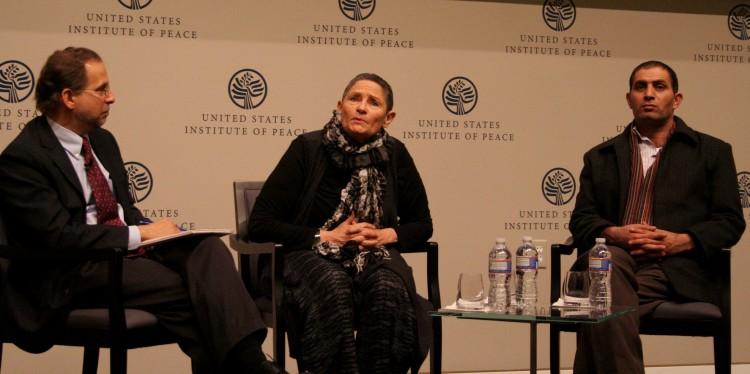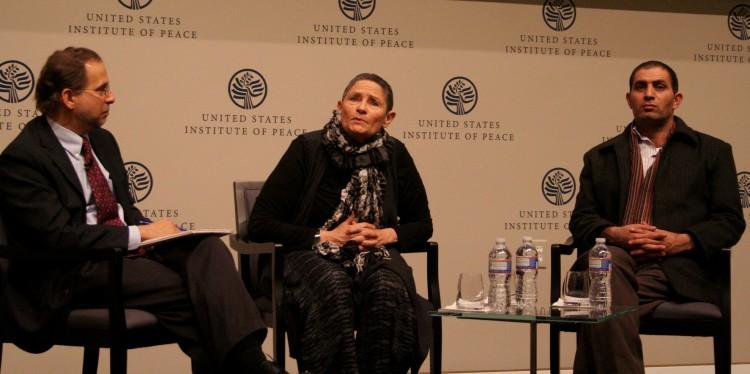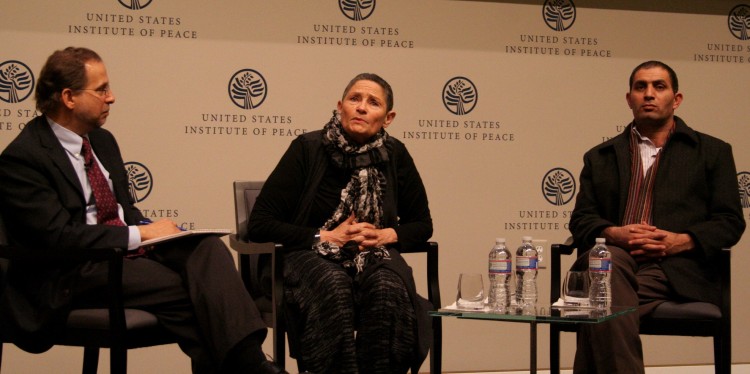Building a Foundation for Peace in Israeli–Arab Conflict
Bereaved families of both Israeli and Palestinian descent unite in the Parents Circle, building a bridge of understanding—a nonviolent, grass-roots step toward resolving the conflict.

Steve Riskin (L) moderates a discussion with Robi Damelin (C), and Bassam Aramin (R) following the screening of a new documentary on the Arab-Israeli conflict titled, “Two Sided Story,” at the United States Institute of Peace (USIP) in Washington, D.C., on Feb. 7, 2013. Damelin, an Israeli, and Aramin, a Palestinian, are active in promoting peace and reconciliation, particularly through dialogue between ordinary people on both sides. Gary Feuerberg/The Epoch Times
|Updated:





